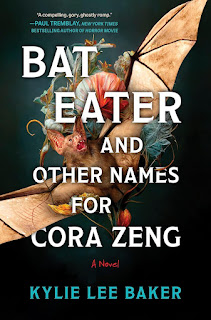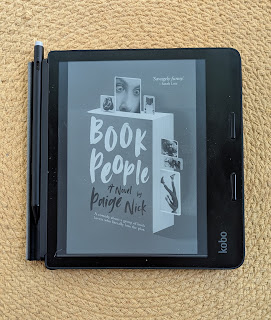 |
| See on Amazon |
A tough read but one I can recommend. I almost DNFed it but came to my senses and realized what the author was saying.
This Is the sort of horror I prefer, i.e. where horror is used to frame social, personal, and political issues. Ring Shout, of which I will post a review later also does this well.
This is the story of a half-white American born Chinese woman living in New York City during the covid pandemic and having to deal with the suspicion and hostility toward Asians as if they are responsible for and carriers of the “Chinese disease”. She witnesses the horrific murder of her sister on a NY subway platform by a masked man who utters the words “bat eater” before shoving her in front of a train.
Bat Eater is a layered horror story; the horrors take several forms. She is a crime scene cleaner dealing with the gross, messy aftermath of murders which would be a horror to most of us. She observes that Asian women have been all the victims lately and bats found around the crime scene. Is there a racially motivated serial killer at work in the city? The authorities don’t seem to pick up on it.
Horror takes another form in the month-long Hungry Ghost Festival which takes place during the course of the story. During the festival, rituals are performed to placate wrathful ghosts. This includes feeding the ravenously hungry ghosts. Here, a cultural celebration becomes an actual threat to Vera’s life and sanity. It is fascinating the way the author weaves this traditional, important cultural celebration into the story.
The bigger horror is what Cora faces in herself. She lives between worlds, Asian and white, and doesn’t fit into either. She’s desperately lonely, has no real friends, and is almost debilitatingly fearful. The author makes Cora’s pain, trauma, and fear real as she faces racial hatred toward Asians which a serial killer may be acting upon and the hungry ghosts.
It’s difficult to describe how Cora’s first person narrative pulled me into her state of mind and created real empathy for Cora.




